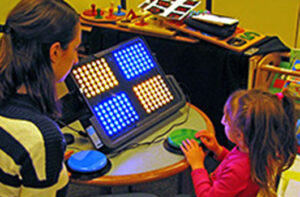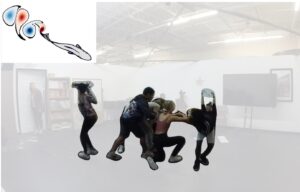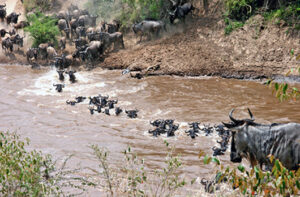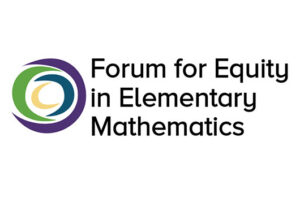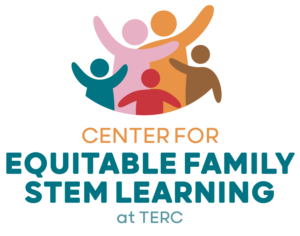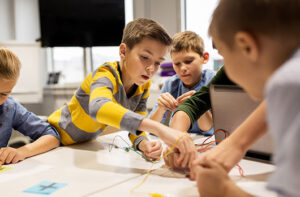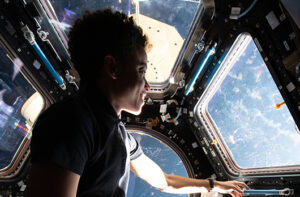Science in Education
A fully online master's program that was designed to help teachers extend their science knowledge and integrate inquiry-based science in their teaching.
StaffProject Co-Directors: Sue Doubler, Linda Grisham
Online Learning & Technology Specialists: Gail Matthews-DeNatale, Debbie Munson
Administrative Assistants: Will Cunningham, Valerie Martin
Lesley University Staff: Michael O’Hearn, Doreen Stewart, Kathleen Whittier
SummaryScience in Education was a fully online master’s degree program designed for teachers, curriculum specialists, and instructional resource persons responsible for K-8 science education. The program aligned with National Science Education Standards, emphasized inquiry-based science, and introduced innovative, learner-centered teaching strategies.
Program Design: The 33-credit hour program was comprised of an introductory 3-credit hour course, Try Science, and five 6-credit hour modules. Each module focused on a particular science domain. Course participants built science knowledge and pedagogical skills through a combination of online and offline learning and discussions with course colleagues. They engaged in doing science to extend their understanding of concepts and skills, rethink teaching and assessment strategies, and implement ideas in their own classrooms.
Instruction: Each module was co-taught by two instructors. A scientist, well-versed in the science domain, guided participants in their acquisition of key science content, skills, and values. A science educator supported participants as they learned and tried out pedagogical strategies for bringing science inquiry to their classrooms.
For each course, participants began their experience by doing science and becoming familiar with how inquiry-based science contributed to learning. As each course progressed, participant attention shifted to supporting science learning in the classroom. They commonly analyzed classroom events presented through video, case studies, or samples of students’ work to become familiar with new teaching and assessment strategies. Finally, they experimented with alternative strategies and curriculum in their professional lives, sharing successes and dilemmas with other program participants.
ResearchWith funding from the National Science Foundation, a two-year research study titled “A Comparative Study of Online and Face-to-Face Learning of Try Science” was conducted. The goal was to explore the nature of inquiry-based learning in the online environment.
The study aimed to answer several key questions:
- What was the nature of the learning experience for students studying online versus face-to-face
- How did the processes of online learning compare to face-to-face learning?
- How did the learning outcomes of the online course compare with those of the face-to-face course?
- Were there specific learning outcomes, in terms of science and pedagogical understanding, that were more effectively achieved in one format over the other?
- What features from online or face-to-face courses could be incorporated into the other to optimize learning in both formats?
The study’s findings were documented in a final report titled An Investigation of “Try Science” Studied Online and Face-to-Face.
ImpactThe Science in Education program was designed to help teachers extend their science knowledge, integrate inquiry-based science into their teaching, and become familiar with web-based information technologies.
The primary aims were to provide a program that:
- was accessible and attractive to teachers;
- aligned with the National Science Standards;
- provided participants with the experience of inquiry learning and rich science content;
- supported participants as they integrated science processes, new curricular strategies, and
- advanced technologies into their science teaching; and
- rewarded professional development with appropriate recognition.
The program incorporated and thus modeled pedagogical practices that supported learners in extending their understanding of core science concepts through inquiry.
Project Co-Directors: Sue Doubler, Linda Grisham
Online Learning & Technology Specialists: Gail Matthews-DeNatale, Debbie Munson
Administrative Assistants: Will Cunningham, Valerie Martin
Lesley University Staff: Michael O’Hearn, Doreen Stewart, Kathleen Whittier
Science in Education was a fully online master’s degree program designed for teachers, curriculum specialists, and instructional resource persons responsible for K-8 science education. The program aligned with National Science Education Standards, emphasized inquiry-based science, and introduced innovative, learner-centered teaching strategies.
Program Design: The 33-credit hour program was comprised of an introductory 3-credit hour course, Try Science, and five 6-credit hour modules. Each module focused on a particular science domain. Course participants built science knowledge and pedagogical skills through a combination of online and offline learning and discussions with course colleagues. They engaged in doing science to extend their understanding of concepts and skills, rethink teaching and assessment strategies, and implement ideas in their own classrooms.
Instruction: Each module was co-taught by two instructors. A scientist, well-versed in the science domain, guided participants in their acquisition of key science content, skills, and values. A science educator supported participants as they learned and tried out pedagogical strategies for bringing science inquiry to their classrooms.
For each course, participants began their experience by doing science and becoming familiar with how inquiry-based science contributed to learning. As each course progressed, participant attention shifted to supporting science learning in the classroom. They commonly analyzed classroom events presented through video, case studies, or samples of students’ work to become familiar with new teaching and assessment strategies. Finally, they experimented with alternative strategies and curriculum in their professional lives, sharing successes and dilemmas with other program participants.
ResearchWith funding from the National Science Foundation, a two-year research study titled “A Comparative Study of Online and Face-to-Face Learning of Try Science” was conducted. The goal was to explore the nature of inquiry-based learning in the online environment.
The study aimed to answer several key questions:
- What was the nature of the learning experience for students studying online versus face-to-face
- How did the processes of online learning compare to face-to-face learning?
- How did the learning outcomes of the online course compare with those of the face-to-face course?
- Were there specific learning outcomes, in terms of science and pedagogical understanding, that were more effectively achieved in one format over the other?
- What features from online or face-to-face courses could be incorporated into the other to optimize learning in both formats?
The study’s findings were documented in a final report titled An Investigation of “Try Science” Studied Online and Face-to-Face.
ImpactThe Science in Education program was designed to help teachers extend their science knowledge, integrate inquiry-based science into their teaching, and become familiar with web-based information technologies.
The primary aims were to provide a program that:
- was accessible and attractive to teachers;
- aligned with the National Science Standards;
- provided participants with the experience of inquiry learning and rich science content;
- supported participants as they integrated science processes, new curricular strategies, and
- advanced technologies into their science teaching; and
- rewarded professional development with appropriate recognition.
The program incorporated and thus modeled pedagogical practices that supported learners in extending their understanding of core science concepts through inquiry.
With funding from the National Science Foundation, a two-year research study titled “A Comparative Study of Online and Face-to-Face Learning of Try Science” was conducted. The goal was to explore the nature of inquiry-based learning in the online environment.
The study aimed to answer several key questions:
- What was the nature of the learning experience for students studying online versus face-to-face
- How did the processes of online learning compare to face-to-face learning?
- How did the learning outcomes of the online course compare with those of the face-to-face course?
- Were there specific learning outcomes, in terms of science and pedagogical understanding, that were more effectively achieved in one format over the other?
- What features from online or face-to-face courses could be incorporated into the other to optimize learning in both formats?
The study’s findings were documented in a final report titled An Investigation of “Try Science” Studied Online and Face-to-Face.
The Science in Education program was designed to help teachers extend their science knowledge, integrate inquiry-based science into their teaching, and become familiar with web-based information technologies.
The primary aims were to provide a program that:
- was accessible and attractive to teachers;
- aligned with the National Science Standards;
- provided participants with the experience of inquiry learning and rich science content;
- supported participants as they integrated science processes, new curricular strategies, and
- advanced technologies into their science teaching; and
- rewarded professional development with appropriate recognition.
The program incorporated and thus modeled pedagogical practices that supported learners in extending their understanding of core science concepts through inquiry.
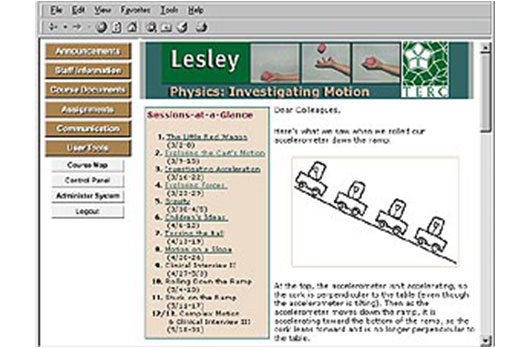
Lesley University
Dates:1997 – 2005
FundersNational Science Foundation # ESI-9911770
U.S. Department of Education
Fund for Postsecondary Education Award #P116D990066.



